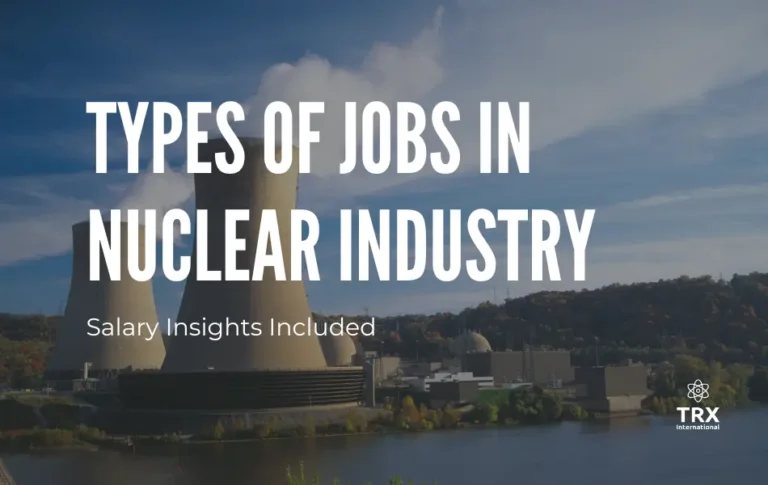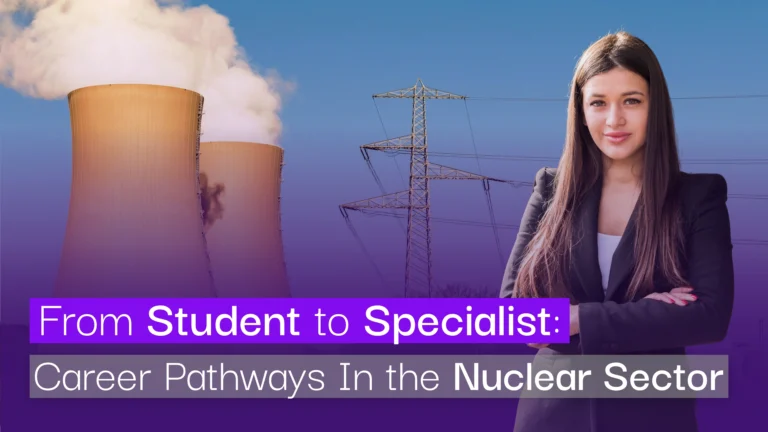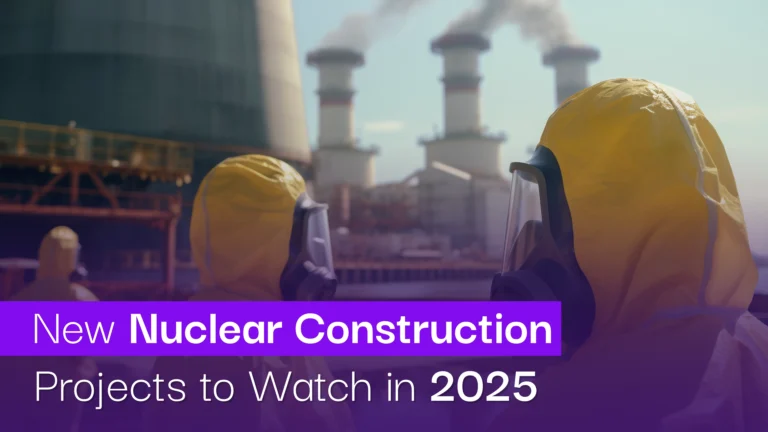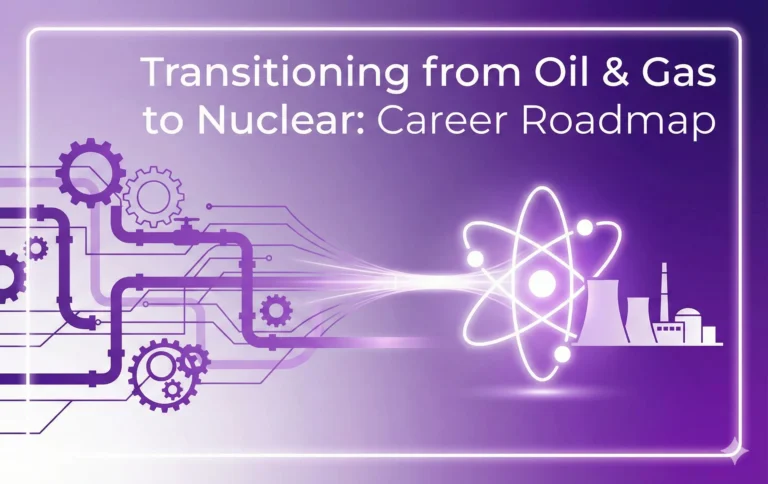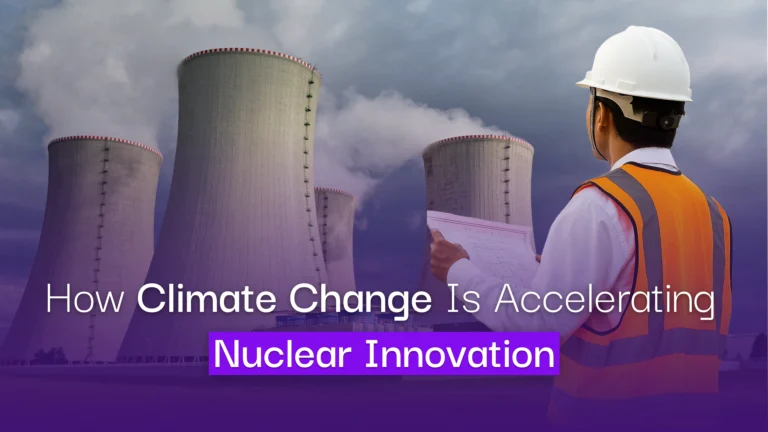The Future of Nuclear Safety Standards and Global Regulations
When it comes to nuclear power, safety isn’t just a box to tick, it’s the foundation that keeps the entire industry moving forward. For decades, the nuclear sector has operated under some of the strictest regulations in the world, and for good reason: even a small failure can have long-lasting consequences for both people and the environment. Today, as countries push for cleaner energy and accelerate investment in technologies such as Nuclear SMR (small modular reactors) and Nuclear Fusion, the demand for stronger, more adaptable safety regulations is only going to grow.
TRX International, with its deep expertise in nuclear recruitment and nuclear staffing solutions, has been at the forefront of helping the nuclear industry meet these evolving challenges. Companies are increasingly looking to hire nuclear specialists, recruit nuclear engineers, and hire nuclear technical staff who can ensure projects align with global safety standards while driving innovation.
Why Nuclear Safety Standards Matter More Than Ever
Nuclear power jobs and projects today operate in an environment where the stakes are higher than ever before. The climate crisis has pushed governments to expand clean energy capacity quickly, while public expectations for safety remain uncompromising. Small modular reactors are changing plant designs, and advanced fusion projects are rewriting what’s possible in sustainable energy. But with innovation comes responsibility.
Safety failures, even small ones, can erode public trust in nuclear power in a heartbeat. This is why governments, regulators, and international industry bodies are working together to ensure safety regulations keep pace with technology. For organizations, having access to skilled nuclear workforce specialists through strategic recruitment is vital to ensure safety is never compromised. Employers must hire nuclear professionals who understand both regulatory frameworks and practical plant operations to consistently meet standards.
The Shift Towards Global Harmonization
One of the most significant changes in the nuclear industry is the growing push for harmonized safety rules across borders. Historically, each country followed its own approach, leading to inconsistencies in how safety was monitored and enforced. Now, with nuclear engineering jobs becoming more global in nature and projects often spanning multiple regions, regulators are working on creating shared frameworks.
This harmonization not only helps governments but also benefits companies. A unified set of standards makes it easier to hire nuclear operators, recruit nuclear project teams, and deploy skilled professionals internationally without the need for extensive retraining in each jurisdiction. TRX International has seen firsthand how global harmonization simplifies workforce mobility, enabling employers to recruit nuclear talent worldwide and strengthen compliance across diverse projects.
How AI and Digital Tools Are Shaping Nuclear Safety
Digital transformation is redefining safety in nuclear power plants. From predictive maintenance to real-time reactor monitoring, AI is no longer just an experimental add-on, it is central to plant safety. By analyzing data from thousands of sensors, AI systems can identify equipment wear, detect anomalies, and flag potential failures long before they occur.
This predictive capability reduces unplanned downtime, lowers costs, and most importantly, minimizes risks to workers and the environment. AI also supports regulatory compliance by maintaining digital records and providing automated reports for audits.
The rise of digital oversight has a direct impact on nuclear careers. Safety professionals of the future won’t only need engineering expertise; they will also need to be comfortable with data science, automation, and cybersecurity. Organizations are already beginning to hire nuclear technical staff, recruit nuclear safety specialists, and hire nuclear consultants who can manage these advanced digital systems while maintaining strict compliance with safety protocols.
Nuclear SMRs and Safety by Design
Nuclear SMRs represent a major leap forward in safety engineering. Unlike traditional large reactors, SMRs are smaller, modular, and designed with inherent safety features. Many include passive safety systems that automatically shut down reactors or keep them cool during emergencies without requiring operator intervention.
This design reduces both the likelihood and the impact of potential accidents, making SMRs a strong candidate for widespread deployment. However, they also introduce new regulatory challenges, as existing safety frameworks were built around large-scale reactors. Regulators are now adapting to ensure that SMRs can be licensed quickly while maintaining rigorous oversight.
TRX International has been actively involved in nuclear staffing solutions for SMR projects, helping employers hire nuclear engineers, recruit nuclear professionals, and deploy nuclear project managers who understand the unique safety dynamics of SMR technology. Ensuring the right people are in place from the design phase to operations is key to realizing the safety benefits of SMRs.
Nuclear Fusion and the Next Frontier
While commercial nuclear fusion is still in its developmental stages, discussions around safety standards are already taking shape. Unlike fission, fusion carries no risk of a meltdown and produces little long-lived radioactive waste. However, it introduces unique challenges, including extreme temperatures, powerful magnetic fields, and new material stresses.
For fusion to scale safely, regulators must establish new frameworks, and specialized talent will be essential to implement them. Companies may need to hire nuclear scientists, recruit nuclear consultants, or engage nuclear technical experts who can bridge the gap between engineering innovation and regulatory compliance.
TRX International plays a critical role here by supporting nuclear leadership recruitment and helping organizations source experts with fusion-specific skills. The ability to recruit nuclear specialists globally ensures that the sector can build robust teams for this next frontier of clean energy.
Workforce Readiness for a Regulated Future
Safety standards, no matter how advanced, are only as strong as the people enforcing them. This makes workforce readiness one of the most important pillars of nuclear safety. Training, certification, and continuous learning programs will remain central as new technologies and safety frameworks emerge.
Nuclear engineering jobs will increasingly require hybrid expertise that combines traditional plant operations with AI oversight, robotics, and cybersecurity. Employers will need to hire nuclear project managers, recruit nuclear workforce specialists, and invest in nuclear talent development to ensure their teams are prepared for complex, high-stakes operations.
TRX International supports this readiness by connecting organizations with both seasoned experts and next-generation talent. From nuclear operators to safety specialists, they help employers secure the right mix of experience and innovation.
Key Trends Shaping the Future of Nuclear Safety Regulations
Several trends are emerging that will define the future of nuclear safety standards worldwide:
- Stricter cybersecurity measures to protect digital control systems from cyber threats.
- Mandatory AI integration for predictive equipment monitoring and compliance.
- Cross-border training programs for nuclear workforce specialists to align with harmonized standards.
- Public transparency initiatives to build and maintain trust in nuclear energy projects.
- Enhanced waste management protocols, ensuring safe handling, storage, and disposal of nuclear materials.
These developments highlight the growing complexity of nuclear safety, where technical expertise must go hand in hand with regulatory knowledge and communication skills.
Also Read: Nuclear Energy’s Role in Achieving Net Zero by 2050
Balancing Innovation and Compliance
The nuclear sector faces a delicate balance: it must innovate quickly to meet global energy demand while ensuring that safety remains paramount. Every new technology, whether it’s a reactor upgrade, robotics system, or AI-powered monitoring tool, must undergo rigorous testing and meet evolving compliance standards.
TRX International continues to match organizations with experts who can navigate this balance, professionals who are equally comfortable with cutting-edge engineering and regulatory oversight. Companies can hire nuclear engineers worldwide, recruit nuclear project teams, or access global nuclear talent through TRX International to strengthen compliance without slowing innovation.
Final Thoughts
The future of nuclear safety standards will be defined by how effectively the industry adapts to technological innovation and evolving global regulations. From Nuclear SMR projects to groundbreaking Nuclear Fusion research, one constant remains: the need for highly skilled professionals who understand safety inside and out.
TRX International will continue to be a trusted partner in nuclear staffing solutions, supporting the industry’s mission to deliver clean, safe, and reliable energy for decades to come. For employers, the ability to hire nuclear workforce specialists, recruit nuclear engineers, and access global nuclear talent through TRX ensures compliance and innovation can move forward together.
FAQs
Q1. What are Nuclear SMRs and how do they impact safety standards?
Small Modular Reactors are compact nuclear power plants with advanced passive safety features. They simplify compliance with strict regulations and reduce risks. Companies can hire nuclear engineers and recruit nuclear specialists for SMR projects to ensure smooth implementation.
Q2. How is the nuclear industry preparing for global safety harmonization?
The sector is moving toward collaborative agreements, shared safety frameworks, and international workforce training programs. Employers can hire nuclear workforce specialists to maintain compliance across regions.
Q3. Will Nuclear Fusion require the same safety standards as fission plants?
Fusion has different risks, including extreme heat and radiation management, but strict safety protocols will still be essential. Specialized nuclear recruitment will be key to filling emerging roles in fusion projects.
Q4. What role does TRX International play in nuclear safety?
They provide nuclear recruitment services and staffing solutions, connecting skilled professionals to projects worldwide. This ensures compliance, safety, and operational excellence.
Q5. How can someone start a career in nuclear safety?
Pursue an engineering or safety-related degree, complete industry certifications, and gain hands-on experience. Partnering with nuclear recruitment agencies like TRX International can also open opportunities with employers looking to hire nuclear engineers and recruit nuclear safety specialists.

